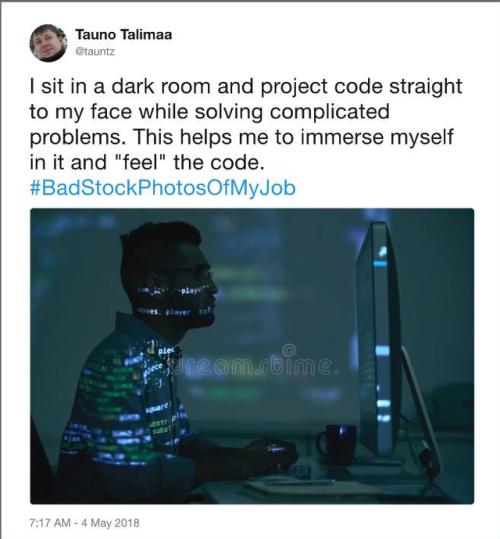Looking For That Studyblr
Looking for that Studyblr
Hey guys 🌸 It’s Alina
• My studyblr is fairly new and I’m looking for new studyblrs to follow and get inspirations from.
• Just reblog this post or follow me and I’ll check out/follow your blog!
Thank you~
More Posts from Charlies-day-off and Others



my computer broke
Reblog if you ARE a woman in STEM, SUPPORT women in STEM, or ARE STILL BITTER about Rosalind Franklin not getting credit for discovering the structure of DNA and the Nobel prize going to Watson and Crick instead.
me whenever anybody says that they like me/that i’m their friend

College Note-Taking System

Having cohesive and effective notes is one of the key skills I think one should have, especially in an academic setting. When you’re receiving a ton of information each day, you want to be able to keep track of that and remember what you’ve learned. I’m constantly trying out ways to make my note-taking more effective and tailored to my needs. Here’s what my note-taking system looks like so far.
Quick note: click on the images for better quality!
Class Notes
Taking notes in class is an invaluable way to keep track of the new knowledge you’ve gained. However, depending on the mode in which the lecture material is conveyed, I take my notes differently. Here’s a summary of how I take my notes for each type of lecture, as well as some examples from the classes I’m taking now.

Slides (e.g. Macroeconomics)
Macroeconomics is a class in which you should be able to intuitively understand a lot of concepts but also remember a lot of things. Because of this, I’ve tailored my note-taking method and habits to achieve that goal.
I write my notes by hand because handwriting is more effective in committing things to memory.
As for what I actually do - and this is what I’ve done for other classes in which the professor/lecturer uses slides:
Read/skim over the slide.
Read each bullet point as the professor goes through them.
Copy it down if it’s straightforward or write it down in a structure and diction that I understand better (not necessarily in my own words - sometimes it’s just restructuring, e.g. splitting things up or joining different bullet points together).
Take note of any other important details the professor says about any particular point unless I think it’s intuitive or common sense.
Here’s an example from a Macroeconomics lecture.

Oral Presentation (e.g. Anthropology)
During classes in which the professor just speaks and doesn’t use much visual material, I listen before I write instead of attempting to write down every single detail mentioned.
Also, I type up my notes instead of handwriting them since the exams are all open-book so I don’t really have to commit things to memory.
Here’s what I do:
Listen for a cue that tells you what this particular part of the lecture will be about (and write it as a heading).
Write down main ideas and their supporting facts/details. If the facts/details come before the main ideas, then I’d usually draw an arrow.
Write down ideas and details from readings in their own section/subsection.
Sometimes, my professor also shows short clips in class, in which case I’d write down the message that I think the clip was meant to convey, as well as things that the professor points out that I didn’t think of on my own.
I’d also look up concepts/ideas/people/events (in real time) that are important to my understanding of the lecture material.
Here’s an example of a Google Docs document from an Anthropology lecture.

Demonstrations and Sample Problems (e.g. Computer Science)
Classes in which the lecture is mainly going through demos and problems are kind of tricky, because you want to know and understand what the professor is doing, but you also don’t want to be writing down every single step that’s being executed. Here’s what I’ve found to be the most effective so far:
If there are any, I import the slides/handout onto OneNote and annotate directly on the slide. If not, I just write down things like definitions, important concepts, and syntax-related things.
I focus on understanding what the professor’s doing with the demo or problem.
I then summarize the steps they took and
Write down comments and points they brought up, e.g. common errors, desirable habits/practices.
Also, these kinds of classes are usually classes in which you’d learn better when you actually do problems yourself, so I definitely learn more when I do assignments and labs than when I’m in class.
Here’s an example from a Web Programming lecture.

Here’s one from an Object Oriented Programming and Data Structures class. I often draw things to help me visualize the general points.

Rewritten Notes
My rewritten notes have definitely changed a lot since high school. Since most of my classes don’t require a lot of memorization, I organize my notes in such a way that they’d be easy to index or find information from. Here are some of the ways I do that:
Establishing a Visual Hierarchy
Having a well-defined hierarchy helps me flow through my notes really well as i read them. It helps me organize information like a mind map without actually making a mind map - I know the big topics and their subtopics and sub-subtopics and details … basically it’s easier to see how these ideas fit together.
But why don’t I just make mind-maps? See, the thing is, a lot of my notes require sequential or linear thinking, e.g. in macroeconomics it might be the sequence of events following a change in the economy, or in computer science it might be a general algorithm for solving a certain type of problem, or it might be proving or deriving a certain equation. These sorts of things just generally don’t work well with mind maps. Instead, establishing a visual hierarchy in my notes helps me organize different ideas while retaining the linear nature of the information.
Here’s what the hierarchy looks like.

Here is an example from my Web Programming class, which is a purely project-based class, so no prelims or exams. As you can see, I draw rectangles around important terminology so that I can easily find them while I’m working on a project. I also include examples from in-class activities as well as notes on syntax so I have an idea of how to implement certain things. These examples and notes are further grouped by terminology/concept.

Structuring Them for Easier Flow
My syllabi for my college courses are nowhere near as detailed as the syllabi for my high school courses - those of you who take/have taken Cambridge exams would know. In college, my syllabi are only lists of topics and not what you’re expected to know for each topic. Because of this, I have to find a way to arrange information so that I can achieve the most comprehensive and cohesive understanding of that topic, i.e. so that the flow of my notes is similar to the flow of my thinking.
For example, in my economics notebook, I like to have the details first (e.g. the separate markets: the goods market, the assets market, and the labor market) and then the big picture later (IS-LM-FE). Some people prefer the other way around - seeing the big picture and then going into the details - which I can understand and have done myself for certain topics.

Making Use of Proximity and Spacing
I very much dislike notes without good use of spacing and grouping things together. Keeping related ideas in visual proximity helps your brain (or at least mine) organize this information. It’s also a lot easier to find things and visualize your notes when they’re not just a huge chunk of text.

One thing I should probably mention is that I don’t use colored pens anymore because it just takes a lot of time to switch pens and think of a color palette. I also don’t have much use for it. In the past, I used color to help me memorize and group things in different categories, but now, I’ve found that there aren’t a whole lot of categories I need to keep track of, and when I do, I can do so with just one pen but changing the style of the text.
And that’s what my note-taking system currently looks like. It’s working well so far, but I still think there are other things I could try out that might be a better fit.
So yeah, hope this was helpful, and as always, feel free to drop an ask if you have any questions, or even if you have any suggestions or would like to share your note-taking system. Have an awesome week!
Study Tips that Aren’t Bullshit
Ok. Listen. I just graduated college on time with two degrees, a minor, and a 3.9 GPA, and now that it’s back-to-school time for some of you folks (my grad program doesn’t start until September) I’ve been seeing some study tips that are half-useful but mostly bullshit. So I’m here to give you some tips for collegiate success as a person who was pretty successful in the collegiate realm.
1) The Three to One Rule is Useless
Here’s the truth. Some classes are going to require minimal effort. Some are going to require more than three hours of outside study time per credit. It’s not a good rule of thumb because different people have different skills and take different amounts of time to do shit. For organic chemistry, you might be spending more 9 hours per week studying (and according to the success rates of some of my peers, I recommend you spend at least that much time on o-chem). But there’s also, say, Oceanography. I took that class. I studied/put in work… maybe an hour per week, and it was a three credit class. But I also took a class that was 3 credits called 18th Century America, and I would say I probably put something like 10-15 hours per week doing the readings and assignments for that class. It just depends, you guys. Figure out what works for each class and then distribute your time accordingly (and don’t waste time studying for something you very obviously know and have already aced).
2) Study When You Can
Sometimes you have to cram. I don’t recommend it, but it happens. If you do, use the whole day before to go over stuff and test yourself. Do not do it the morning of, don’t do it right before the test. That is useless. If you have a good memory, you can study the night before/two days before.
That said, if memorization and improvisation aren’t your strong suits, do go over your notes at the end of each day, and if you don’t get something, as your prof or your TA or your friend who definitely knows what they’re doing. Talking about it will only help you remember it more.
Overall, study when you can find the time. Sometimes that means staying off twitter for a few minutes and reviewing your notes instead, but if you’re paying good money for higher education (and I assume you are), don’t waste it by never studying or blowing off an exam.
3) Manage Your Time, But…
Just because you manage your time to make school a priority does not mean that you should let the other things in your life fall by the wayside. People often forget basic self care when they put school before everything else. Remember to shower and brush your teeth and take a minute for yourself because life is a lot and school is just a small part of your life. You cannot let time management become a synonym for school > everything else. It just means that you need to spend all of your time wisely, whether that’s getting some socialization in there or eating dinner or doing homework or taking a shower.
4) You Are Allowed to Forget Stuff
Look. I recommend always having more than one writing utensil, but you can forget one day. You can forget a notebook or a textbook every once and a while. I did, and yet I succeeded with flying colors. Definitely try not to be rushed all the time, but don’t freak out if you grabbed the wrong notebook. Just take down notes and staple them into the right one, or however you do it.
Also, yeah, your college profs aren’t here to attend to your personal needs, but if you have a class on one side of the campus and only ten minutes to get to the class on the other side of the campus, see if you can leave early or let the prof know that you’re going to be a few minutes late because you can only cross a mile so fast. Professors are far more understanding than they let on (some of them aren’t, but they’re just dicks, and you’ll either have to deal with that or be prepared to challenge them).
And, of course, if you’re struggling, ask for help. Profs want you to succeed, actually, and if they don’t, then it might be time for a discussion with the chair of the department.
5) Stay Organized, Whatever That Means
Some people stay organized with color-coded pens, tabs, and a designer planner. Some people have the patience for bullet journals. Some people write their assignments down on their phones, or set a google/apple calendar alert. However you remember things, just remember them. What’s organized to you won’t be organized for someone else, and what’s organized for someone else might not look organized to you. There is no objective way to stay organized. I don’t recommend trying to store everything inside your head, but you’ll figure out what works for you.
6) You Don’t Always Need to Read/You Don’t Always Need to Take Notes
Some classes are really important, some are not; some textbooks are really useful, some are not; taking notes can be effective, or they could be useless to you by the time the exam or essay rolls around. I took very light notes for my Brit Lit class (and did 75% of the reading), my World Drama class (90% of the reading), my Monuments in History capstone (20% of the reading), and I got A’s in all of those classes. I took heavy notes for Biology and Western Mythology and read about half of what was assigned. I took no notes for my Anthropology of Sex & Reproduction class, but I read absolutely everything.
It will probably take you about three weeks to figure out your prof’s teaching style. If it’s an English class, you’re gonna need to read most of it. If it’s a science class, maybe not. If you only have a midterm and a final, and not tests i between those, you might want to keep the textbook handy. But different classes have different requirements, just like they do with the number of hours you spend studying. So you know, act accordingly.
7) Read The Assigned Chapter Before Class, But Don’t Read Ahead
Look, most profs are gonna tell you to read the chapter before class on Monday, or maybe they’ll give you until Wednesday, so you should read in advance. But unless a prof says to read ahead, you really don’t need to read ahead, especially if you have content-based reading quizzes. It just gets really confusing and getting ahead is only necessary when you know that otherwise you’ll get behind. I mean, read ahead if you want to, but know that you probably don’t have to.
8) Show Up, For Fuck’s Sake
Look, showing up is the easiest thing in the world. And I know what having those 8am/9am classes is like. I’ll admit, I didn’t show up half the time to my 9am freshman philosophy class, but I bet I wouldn’t have failed two tests if I’d shown up (I still got an A in the class, don’t worry, there were a lot of assignments and one test didn’t count for much). I just wanted to sleep. But if you show up and pay attention, you’re more than likely going to get a lot of out of the class.
Oh, and if your prof takes attendance. Show up. Especially if it’s a small class. Trust me, they’ll notice, and it will be so embarrassing.
But also, don’t sweat it if you’re sick one day or sleep through the alarm. It fucking happens, and like I’ve said before, profs are pretty understanding most of the time.
9) Take Notes However Works For You
Some people use that weird method of dividing the paper in half hot-dog style, and that’s fine. Some people scribble shit down that no one else can read. Don’t feel pressured to rewrite your notes unless you can’t understand them. Do not review right after class - give your brain some fucking time to process that shit. But maybe review in the next 48 hours, it’ll help you be ready for the next class.
10) Don’t Be On Your Phone
Unless you’re literally not learning anything. I spent more time in my Geography class on my phone or computer getting useful things done or playing games than I did actually learning anything from the professor. In my Asian History class, the teacher was mediocre at best, so my friend and I sat there in the front row and played hangman (which was kind of disrespectful but we were idiots at the time so). But if your grades slip because you’re on your phone and not paying attention, or if your teacher has to tell you more than once to get off your phone, you might have phone addiction. See someone about that, k?
11) Review? Maybe
If you choose to review your notes, do so in a quiet, calm, and un-rushed manner. Don’t just look at them - actually try to absorb them. Otherwise there’s no point in reviewing them.
12) Study When You Can
Wait, didn’t I already have this one? Yeah. But! I saw a thing that said study early and often, which is great if you can make the time, but the truth is that if you study too early you’ll forget everything, and if you study too often you likely won’t be able to focus on other things that require your attention. So study not too long nor too shortly before the exam, and don’t study so much that your brain explodes. Give yourself a break. Have a kit-kat.
13-14) Flashcards? Mnemonic Devices?
Use them if they work for you, and maybe try color coding them. That can help with memorization. But if they don’t work for you, don’t use them.
15) Don’t Rewrite Your Notes
Unless you can’t read them. Then definitely either rewrite them or type them up, so that they’re actually usable.
16) Consolidate
This suggestion was actually pretty okay. Making lists and/or tables or whatever can really help, especially if you’re a visual learner. But if they don’t help you, don’t use them, because then it’s just a waste of your time.
17) Teach It To Someone Else
Yeah, this one is good, too. But make sure the person you’re explaining it to doesn’t have a lot of background knowledge, because it’s being able to explain it correctly to someone who hasn’t heard it before that really counts.
18) Is There Even Such a Thing as a Good Study Environment?
Some people can’t study on their own. I sure have a hard time of it, especially because I get distracted on my own. For me, studying with others for exams has saved my grade. But there are times or assignments that are best done on your own.
What I will say, is that when you study with other people, sometimes it’s best to study with your friends who are studying something else. My friend Breea and I had completely different majors and classes, but we made the best study partners because she could explain science to me and I could explain anthropology and history to her, and that’s how we knew we were good to go.
19) Sleeeeeeeeeep. Plan. Deal.
Get a good night’s sleep before an exam and try not to be late. Mean profs will not let you make up a missed exam. Good profs will, even if it was just a traffic jam. But generally speaking, try to prepare for all worst case scenarios when you have an assignment due.
20) Ask. Questions. Jesus. Christ.
Look if you get something wrong, don’t be embarrassed or ashamed. Ask why you got it wrong, and if you think you did something right but the TA or prof just graded it wrong, feel free to point out their mistakes (in private, though, not in front of the class). Go to office hours and make use of that time, or make an appointment with a prof so that you don’t have to skip class to go to office hours.
21) Midterms and Finals Are Different. Or Not.
Ask your prof at the beginning if the final will be cumulative. If it is, keep reviewing that midterm material through the end of the class. If not, feel free to forget most of the stuff from the midterm and earlier. Each prof is different and some finals aren’t even exams, they’re papers or projects. So, you know, plan accordingly.
22) Don’t Keep Your Fucking Textbooks
Look, unless you fell in love with a text (happens to English majors), sell back your books. And after a few weeks (or once the next term starts) throw out your notes, especially if you can’t read them or if they’re for a class you had to take for university credit but didn’t actually need for your major.
SELL. THOSE. BOOKS. I can’t say it enough, you won’t make much, but it’ll be nice to get that lunch after finals are over. But remember, don’t sell the book until you’ve taken/turned in the final.
23) Talk to People!
I saw something that said not to discuss grades/quizzes/tests/exams with classmates. Fuck that. I mean, try not to talk about it before the exam starts or whatever, but fucking talk about that shit. In my Mediterranean Archaeology class, we all talked about the readings before class on Fridays because we had a reading quiz and no fucking idea what the reading was about (those were some of the hardest readings ever). It was really helpful to discuss and summarize to make sure we got the point of the article. Also, like, if you’re comfortable with sharing grades, do, and if you’re not, don’t. It’s your grade, you can do whatever you want with it.
Also, if you’re unsure about something, you can ask a classmate. That’s probably a better first resource than a prof, who will get annoyed, especially if you didn’t do the reading.
THAT’S IT.
Well, I hope this fucking helps. This was basically how I survived college, except add a lot of caffeine. Every major is different, some things are universal. So. You know. Go ham.






The best hashtag evah
there’s a website where you put in two musicians/artists and it makes a playlist that slowly transitions from one musician’s style of music to the other’s
it’s really fun
REBLOG IF YOU'RE A STUDYBLR!!
Hey everyone!! I’ve been in the studyblr community for a week now, and I’ve seen some really fantastic stuff going on in here! :)
I’d like to interact with more of you, so PLEASE REBLOG THIS POST and I’ll check out your tumblrs - and we can also expand the community by everyone who reblogs interacting with each other! :) So if you’re looking for new friends and you’re a studyblr, a langblr, a medblr, or any study/education related tumblr then this is the perfect thing to chuck onto your blog! :)
Also, send me a question or inbox me anytime, I’d love to talk to any of you about anything at all!! :)
Looking forward to chatting to you all!! :) - Nic xx
-
 nanchuu-blog1 liked this · 8 years ago
nanchuu-blog1 liked this · 8 years ago -
 city-witchcraft liked this · 8 years ago
city-witchcraft liked this · 8 years ago -
 simplyystudyblr liked this · 8 years ago
simplyystudyblr liked this · 8 years ago -
 istudytoomuch reblogged this · 8 years ago
istudytoomuch reblogged this · 8 years ago -
 lohastudies liked this · 8 years ago
lohastudies liked this · 8 years ago -
 studybuds reblogged this · 9 years ago
studybuds reblogged this · 9 years ago -
 delaneystudying reblogged this · 9 years ago
delaneystudying reblogged this · 9 years ago -
 delaneystudying liked this · 9 years ago
delaneystudying liked this · 9 years ago -
 effectivestudies liked this · 9 years ago
effectivestudies liked this · 9 years ago -
 literally-studying reblogged this · 9 years ago
literally-studying reblogged this · 9 years ago -
 someinspirationblog-blog liked this · 9 years ago
someinspirationblog-blog liked this · 9 years ago -
 youcouldmakeaconlangoutofthat reblogged this · 9 years ago
youcouldmakeaconlangoutofthat reblogged this · 9 years ago -
 ainspirationalstudyspo-blog reblogged this · 9 years ago
ainspirationalstudyspo-blog reblogged this · 9 years ago -
 fightingformydreams-blog1 reblogged this · 9 years ago
fightingformydreams-blog1 reblogged this · 9 years ago -
 xietrastudies reblogged this · 9 years ago
xietrastudies reblogged this · 9 years ago -
 studyandcompete-blog liked this · 9 years ago
studyandcompete-blog liked this · 9 years ago -
 earthakittstan liked this · 9 years ago
earthakittstan liked this · 9 years ago -
 aleyshaaa04-blog liked this · 9 years ago
aleyshaaa04-blog liked this · 9 years ago -
 studypresentforfuture reblogged this · 9 years ago
studypresentforfuture reblogged this · 9 years ago -
 blckvstudy reblogged this · 9 years ago
blckvstudy reblogged this · 9 years ago -
 salt-water-giraffe liked this · 9 years ago
salt-water-giraffe liked this · 9 years ago -
 oishi-studies reblogged this · 9 years ago
oishi-studies reblogged this · 9 years ago -
 soniaisstudying-blog reblogged this · 9 years ago
soniaisstudying-blog reblogged this · 9 years ago -
 charlies-day-off reblogged this · 9 years ago
charlies-day-off reblogged this · 9 years ago -
 studying-g liked this · 9 years ago
studying-g liked this · 9 years ago -
 thaniastudies reblogged this · 9 years ago
thaniastudies reblogged this · 9 years ago -
 nursingzen liked this · 9 years ago
nursingzen liked this · 9 years ago

Waddup my name is Charlie, im 21, and i never fucking learned how to study.
241 posts